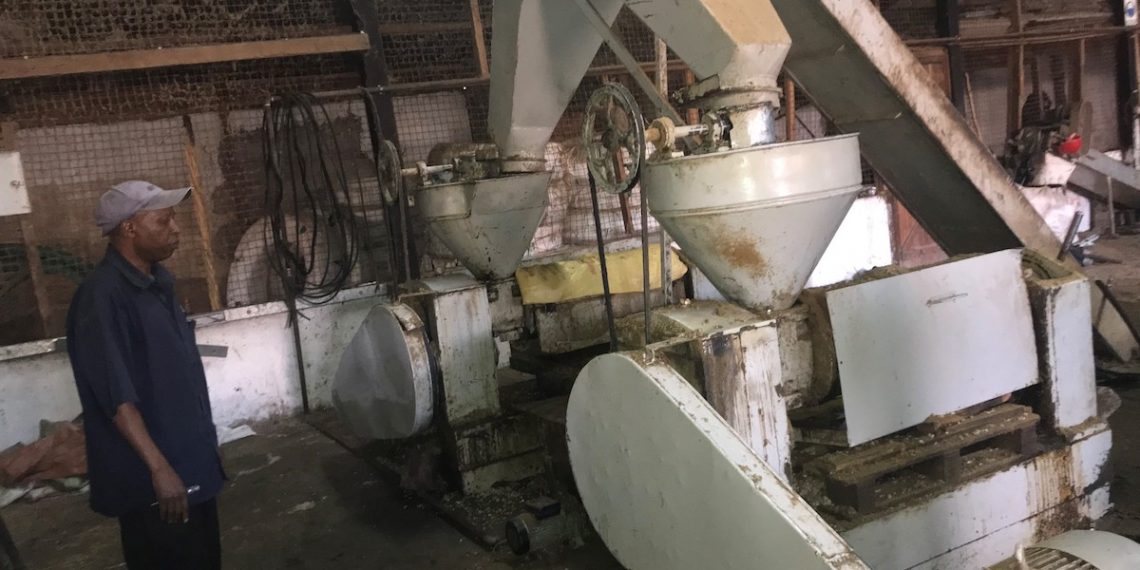Recent years have been particularly tough on Kenya’s farmers. The country has endured three consecutive seasons of below-average rainfall. Last year, the government declared a national drought emergency for 23 of the country’s 47 counties; 13 are under drought emergency so far this year. This erratic rainfall is part of the reason nearly 3 million people are food insecure in the country.
While irrigation systems could help provide a more stable source of water, they currently cover only six to eight percent of Kenya’s land. Some farmers, though, are gaining access to them through a novel source of power—biodiesel made from crushed cotton seeds.
Biodiesel for Irrigation
Taher Zavery runs a cotton-ginning factory in Kitui, a semi-arid county in central Kenya. He manufactures biodiesel by crushing the cotton seeds separated from cotton bales during ginning. By using waste instead of growing crops specifically for biodiesel (as other biodiesel-for-agriculture projects in Africa have), he has been able to produce quite a lot of fuel without adding to the problem of food scarcity. So far, he has provided loans for and supplied 105 biodiesel-fueled water pumps to nearby cotton and food crop farmers, with help from a USAID grant.

This machine extracts biodiesel from cotton seeds. Photo by Esther Kahinga
The project has helped improve farmers’ incomes in the face of erratic weather. Abel Mutie lives about 12 miles from Kitui on a five-acre plot. He supplements his salary as a teacher in the local primary school with income from his farm. While he previously used a petrol-based water pump, the biodiesel-based pump offers several advantages.
For one, Mutie can run the biodiesel pump 12 hours a day; the petrol pump needed a break of at least one hour after about five hours of use. It also costs less to operate. On an average day, he uses three liters of biodiesel as opposed to six liters of petrol. The biodiesel costs about $0.20 less per liter than petrol.
Most crucially, the biodiesel pump can irrigate a bigger portion of land, which has allowed Mutie to start growing onions. He harvested nearly 9,000 pounds of onions last year, earning about $4,000. He was able to pay off the balance for his biodiesel pump, which cost about $340, and use the rest of the money to buy more fertilizer, pay school fees for his children and save some to help his family get through the next inevitable extreme weather event.

Abel Mutie with a biodiesel irrigation pump and generator pump. Photo by Esther Kahinga
Kenyan Farmers Struggle to Get Loans for Farm Equipment
While Mutie is not alone in reaping the benefits of biodiesel-based water pumps, not all have seen his level of success. Boniface Wambua increased the portion of his land under irrigation by using a biodiesel-powered water pump. He made about $500 in the first season of using it, which he used to pay fees for the five of his six children who still attend school. Last year, however, the drought was followed by more extreme weather: unusually heavy rains in April and May. The flash floods washed away his tomato crop and tree seedlings. He hopes that the onions he recently transferred from their seedbed will grow well, and that he’ll be able to pay off the remaining debt on his pump.
But therein lies another challenge for farmers seeking water pumps and other technology for agriculture: financing. Zavery had hoped financial institutions would provide loans to farmers so they could purchase biodiesel irrigation pumps, yet none of them would because the farmers didn’t have bank accounts. Microfinance institutions (MFIs) quoted interest rates as high as 45 percent. Zavery’s company, Kitui Industries, ended up providing loans as well as the pumps, putting themselves in a risky position financially. Mary Mwinzi, operations manager of Kitui Industries, assesses which farmers will be able to repay loans and works with them to use the pumps to earn additional income. While she is willing to offer a grace period for struggling farmers, paying back the loans is essential for the business model to be sustainable.

Onion plants on Boniface Wambua’s farm. Photo by Esther Kahinga
Expanding Access to Technology for Climate Adaptation
Companies like Zavery’s will only become more essential in Kenya in the face of growing climate risks like erratic rainfall and frequent and prolonged droughts.
One potential solution to expanding farmers’ access to climate adaptation technologies is pay-as-you-go (PAYG) models, where a company rents out a renewable energy system to a farmer. These types of models are already helping rural Africans gain access to electricity through solar home systems. Currently only relatively small home systems are available through PAYG arrangements, but larger systems such as irrigation pumps could also operate that way if local financial institutions would provide loans to PAYG companies. Decentralized renewable energy can help Kenyan farmers adapt to a climate-stressed world, but only if the right financial systems are in place to make clean technologies a reality.
Our blog series, Humans of Clean Energy, focuses on clean energy pioneers in the developing world and the customers they serve. The series is as part of an ongoing WRI research project to explore the social and environmental impacts of clean energy entrepreneurs.


